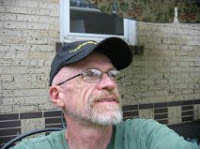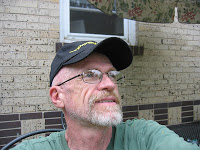“That horse has left the barn”
When I hear the word “hooves” in nearly any context I think of horses though many different mammals have hooves. My early days on the farm never involved horses so I may have made the association of hooves with horses after watching Gene Autry and Roy Rogers on 1950’s TV.
I remember that the often ridiculous and blatantly racist TV westerns seemed to distinguish between native American horse-hoof prints from those of the always white settlers, American law men and cavalry by noting whether the horses had been shod or not. Native horses had no shoes where as those of the white folk always did, a simplistic view since many native tribes were quite adept at acquiring horses from settlers and others who shod their horses. On these TV shows blacksmiths were often shown dramatically forging by fire while shaping the shoes and then nailing them onto the horses’ hooves. This really is the extent of my connection with the word hooves, though I do vaguely recall older male relatives on occasion playing “horseshoes”. That was a game though that never caught on for me personally.
Another memory of hooves was the apparent use of fake cows’ hoofs being used by moonshiners wearing them to throw off federal agents chasing them during Prohibition. Not sure exactly how this worked since cows have four feet and humans only two. However wasting time on thinking about this application of hoof-foot-wear as a means to sneak to one’s moonshine still in the woods will do little to address any real world problems these days I am afraid.
I can though make a tangential leap from hooves by way of horses and cows to the phrase: “That horse has already left the Barn”. This implies of course to the after-the-fact reality that it is too late to do anything about whatever. If one adapts this as a world view these days there are many things that seem too late to do much about whether we want to admit that reality of not.
Climate change sadly is one reality that it may very well be too late to do much about. That horse seems to have galloped away and kicked the door shut with both of his back hooves. Still in my more optimistic moments I can’t help but think that if we were to embark on a Manhattan Project to save the planet that salvaging an at least livable, though probably less than desirable, planet might be doable.
Laughably perhaps I can hope that the recent hurricane evacuations for both Trump’s Mar-a-Lago estate and Rush Limbaugh’s beachfront properties in Florida might turn into teachable moments. That however does not seem likely.
My go to person around all things climate change and how this is intimately tied to capitalism specifically is Naomi Klein.
I highly recommend her two most recent works: This Changes Everything: Capitalism vs. The Climate and “NO is Not Enough” subtitle “Resisting Trump’s Shock Politics and Winning The World We Want”. Here is a link to these works and Naomi in general: http://www.naomiklein.org/meet-naomi
It isn’t that the Donald Trump’s and Rush Limbaugh’s of the world don’t believe in climate change, I actually expect they do. It is that they realize better than many of us that the only effective possibility for addressing this catastrophe is a direct threat to their worldview and way of life. That their greedy accumulation of goods and capital will save them from the resulting hell-scape in the end is truly delusional thinking on their part.
I feel the only viable solution being an acceptance of the socialist ethos: From each according to his ability, to each according to his needs.
© October 2017
About the Author
I was born in La Porte, Indiana in 1949, raised on a farm and schooled by Holy Cross nuns. The bulk of my adult life, some 40 plus years, was spent in Denver, Colorado as a nurse, gardener and gay/AIDS activist. I have currently returned to Denver after an extended sabbatical in San Francisco, California.




